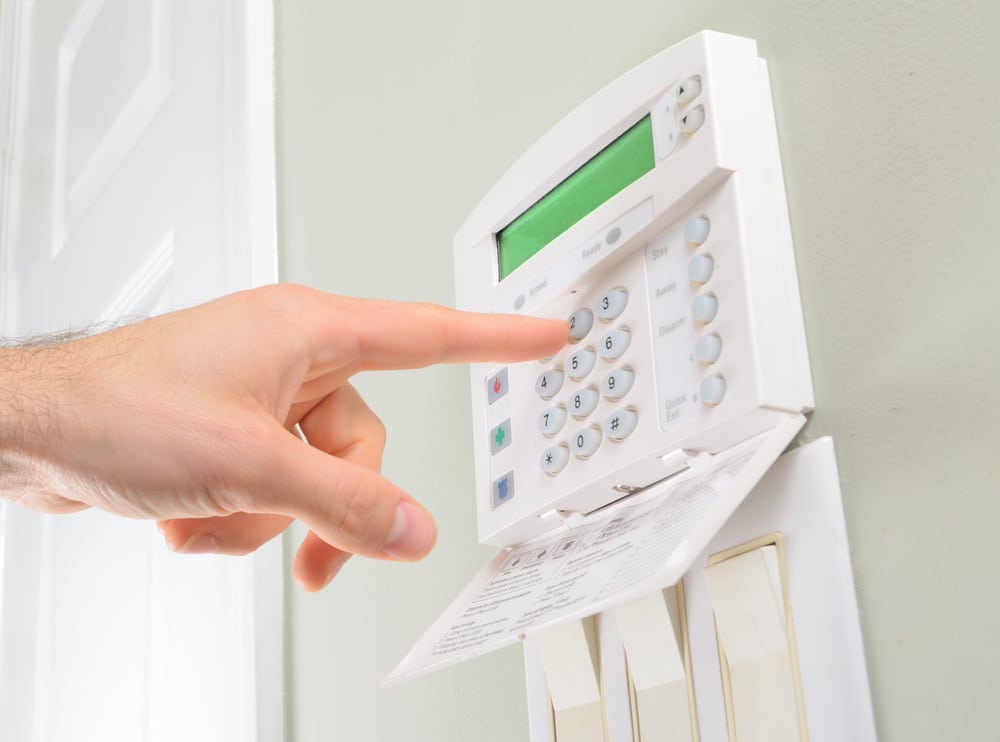Why Should You Get A Home Security System?
Investing in a home security system may initially seem like a significant expense, but the benefits can make it well worth the cost. Aside from offering a potentially lower homeowners insurance premium, a security system provides peace of mind and additional safety for you and your loved ones. While it may feel overwhelming to choose the right system with so many options available, a clear understanding of your needs and the available features can make the process much easier.
Choosing a Home Security System
Pick the Right Company – When selecting a home security company, it is important to pick one with a history of delivering quality products and reliable service to its customers. To check dependability:
- UL Certification: Make sure the alarm and components are certified by Underwriters Laboratories (UL), a respected organization that ensures products meet rigorous safety and reliability standards.
- References and Reviews: Ask the company for a list of current clients who can provide references on their experience. Additionally, check online reviews and testimonials for unbiased insights.
- Better Business Bureau (BBB) & Local Police: Contact the Better Business Bureau (BBB) or your local police department to see if they have any knowledge of complaints against a specific provider. A security company with a good track record is one you can trust.
Choosing a Monitoring Service Option – The monitoring service is a critical part of your home security system, as it ensures there’s always someone to respond in case of an emergency. When choosing a monitoring service, consider these options:
- Professional Monitoring: This option offers 24/7 oversight by a monitoring center, which can immediately alert authorities if there is a security breach, fire, or other emergency.
- Self-Monitoring: Some systems allow you to monitor your home through an app on your smartphone. This option can be more affordable but relies on your ability to respond to alerts in real time.
- Hybrid Monitoring: Some companies offer hybrid models where you primarily self-monitor but have access to professional monitoring for specific situations or when you’re unavailable.
Keep in mind that professional monitoring is often more secure, as it offers immediate support and response regardless of whether you’re available to answer notifications.
Additional Considerations – To ensure that you understand what you’re paying for, you should also inquire about the following:
- System backup: Even in cases of power outages or network disruptions, reliable security systems should stay online. Look for companies that offer cellular or radio backups, which can keep your system functional even if physical lines are cut or disabled.
- System tests: Ask about the frequency and types of system tests. Good providers will perform regular tests to ensure your system is working optimally and will communicate with you if any issues are detected.
- Routine Maintenance: Ensure the company includes annual maintenance checks as part of the service. Routine inspections and maintenance prevent malfunctioning devices and keep your system effective long-term.
Safety First
Home security systems are not just about preventing break-ins. Fires, carbon monoxide leaks, and flooding are critical hazards that a comprehensive security system can address. Here’s how you can enhance the safety of your home:
- Integrated Fire Alarms: A fire can cause more damage than a break-in, especially if it starts while you’re away. A built-in fire alarm within your security system can detect smoke and heat, automatically alerting the fire department to ensure a fast response.
- Carbon Monoxide Detectors: This odorless, invisible gas can be deadly, especially during the winter months. A carbon monoxide detector can alert you to dangerous levels, allowing you to get to safety quickly.
- Flood Sensors: Basements, laundry rooms, and areas near water sources can be protected with flood sensors, which can help prevent costly water damage by notifying you of leaks or flooding before they get out of hand.
Investing in a comprehensive security system that goes beyond burglary protection is a proactive way to ensure your home is as safe as possible.
Safety First
Beyond your security system, there are other proactive steps you can take to protect your home:
- Use Smart Locks: These allow you to monitor and control your doors remotely, letting you verify whether they’re locked and who’s entering your home.
- Install Security Cameras: Both indoor and outdoor cameras deter criminals and can capture footage of any suspicious activity.
- Consider Motion-Sensor Lighting: Installing lights that activate upon detecting motion can deter intruders and enhance safety when approaching your home at night.
- Create a Security Routine: Regularly check your locks, security system, and alarms. Practicing this routine can help identify potential security weaknesses before they become a problem.
Next Steps
For personalized advice on securing your home, contact us using the form below. Our personal insurance team is always available to provide increased peace of mind, security, and freedom from worry. Be sure to like us on Facebook and follow us on LinkedIn for more safety tips and industry news!

